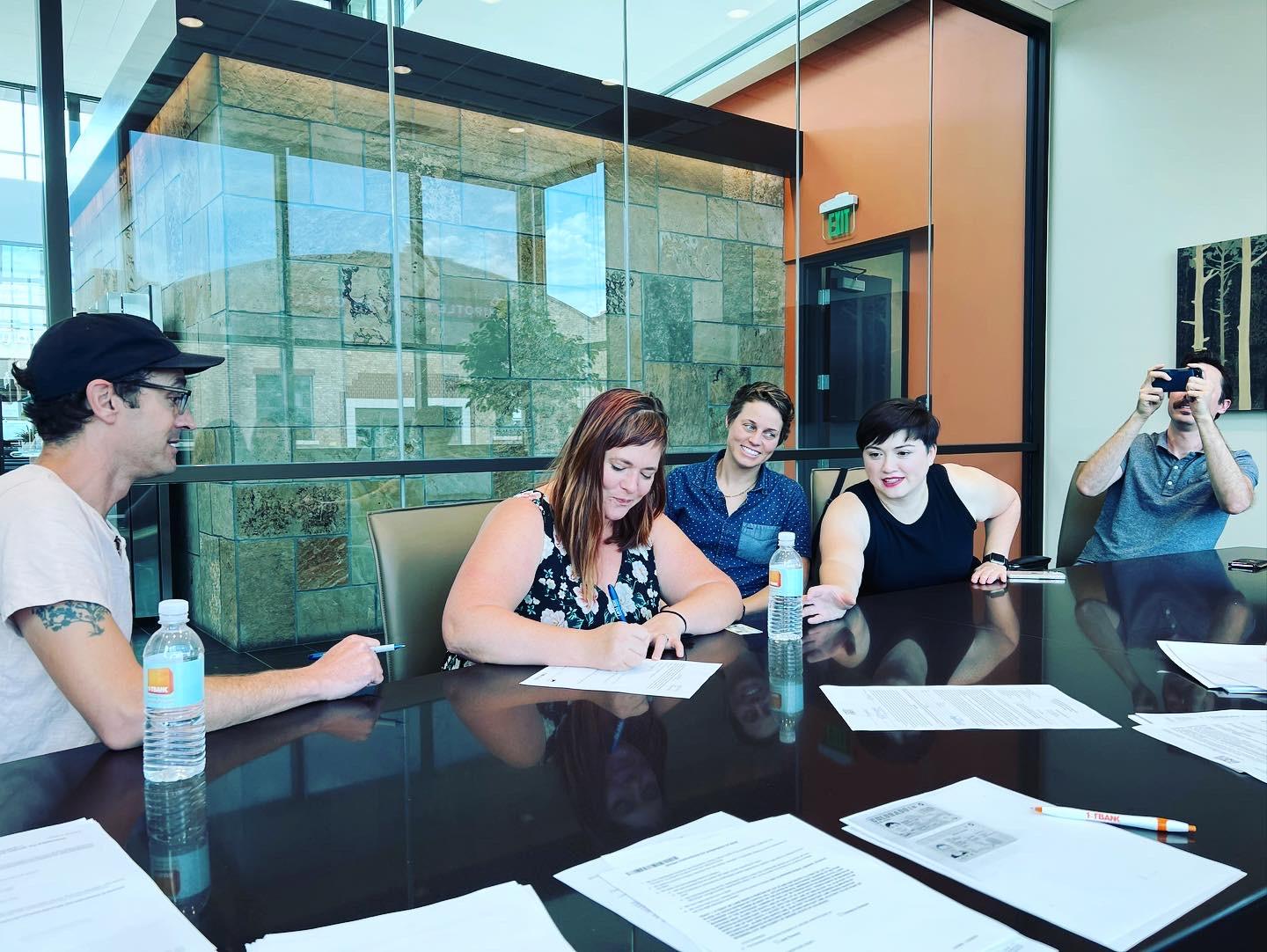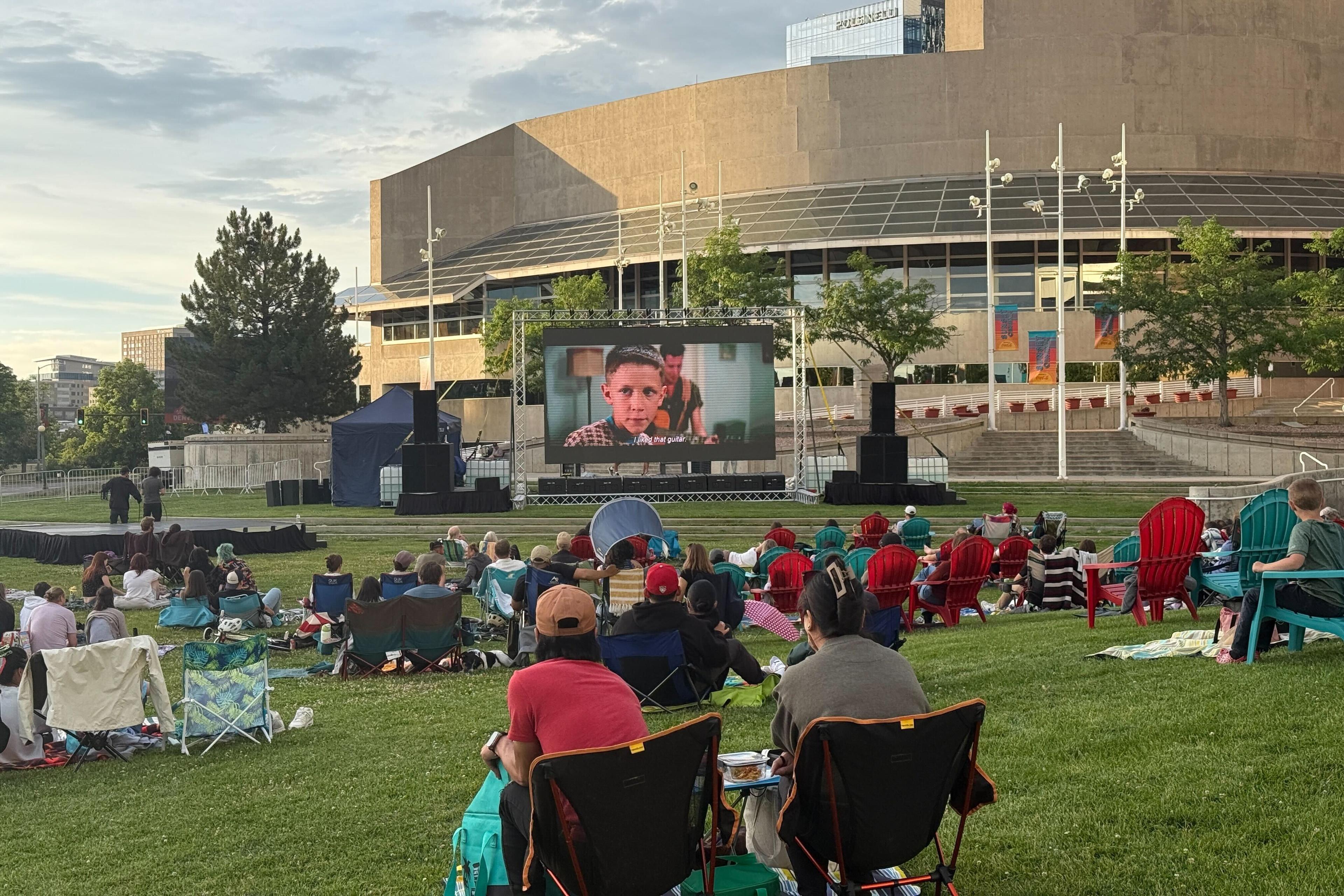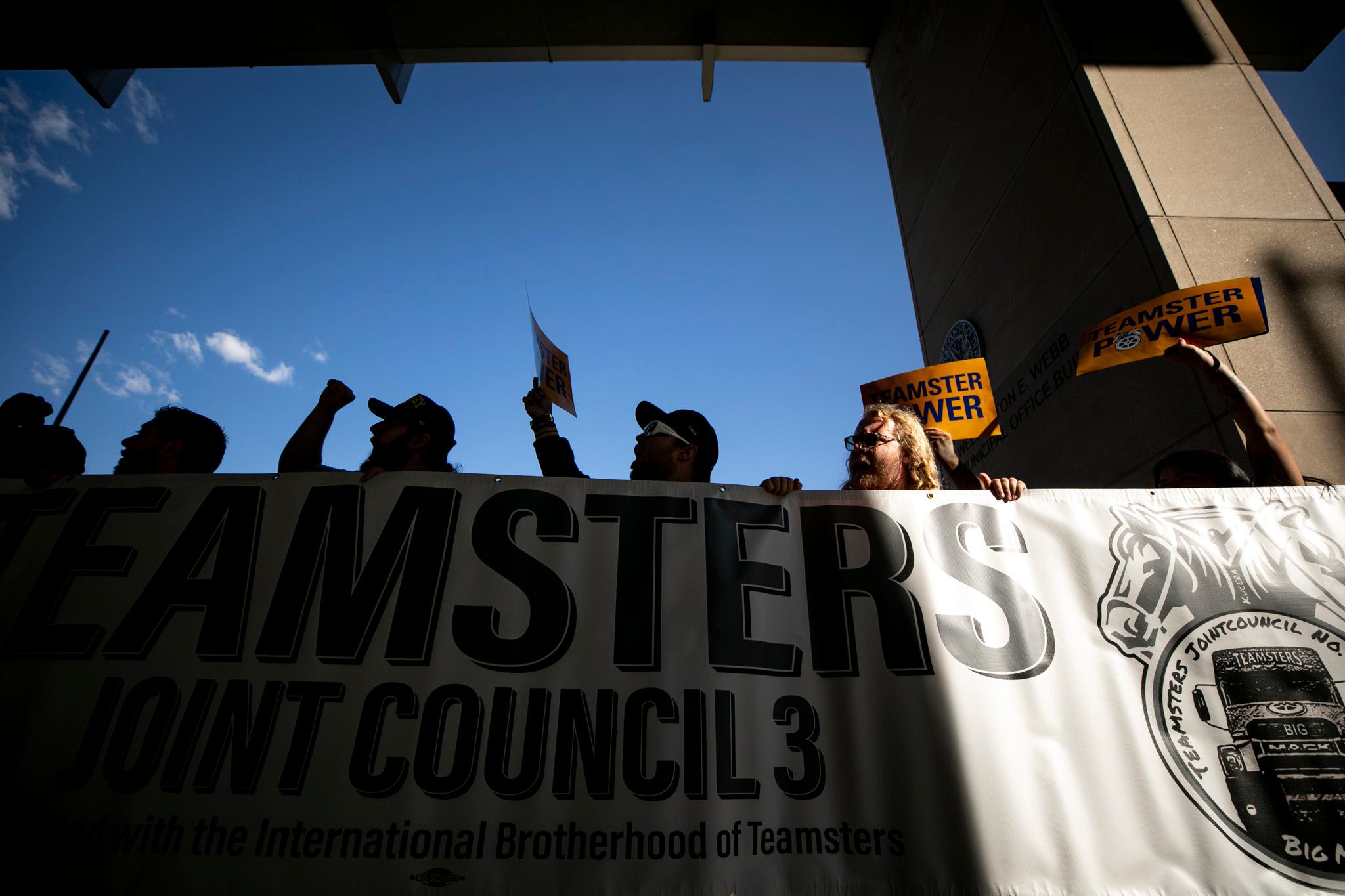In 2015, nonprofit program director Sarah Wells sold her condo to buy a Capitol Hill mansion, at 901 North Clarkson Street, with her partner, academic and activist Stephen Polk.
A longtime denizen of punk houses and other housing collectives, he had just moved back to Denver from New York. They planned to turn the mansion into cooperative housing, where multiple people could live at a fraction of the cost most in the city pay.
Their new home's name: Queen City Cooperative.
Ditching her condo wasn't an easy decision for Wells.
For a young, upper-middle-class person in the United States, there is a tried-and-true path: Get a job, find a spouse, buy a home, have a kid, live as a nuclear family unit and build equity -- money you don't really have to work for and that rises and falls with the market and, over the long haul, historically increases.
Individual ownership is a sweet system for those with enough wealth and privilege to get in on the action, less so for the hundreds of thousands of people in Denver -- and millions nationwide -- iced out of homeownership because of a lack of resources to invest.
With sky-high prices, even some middle-class people say home ownership has become impossible in Denver. Generally, that means they keep renting individual places, enriching landlords, or leaving the area.
"I went from owning my own condo and living alone for eight years to living in a big mansion with a bunch of strangers," Wells said.
No doubt, Wells was taking a risk on an uncertain future abandoning individual home ownership for cooperative living. Would she like to have housemates? Was it worth abandoning individual wealth?
Wells had one demand in her attempt at cooperative living: "I said, 'I want this to be a step up, not a step down.' Because I had heard all the stories of like needing to walk around in a sleeping bag in winter. I wasn't gonna do that."
Friends worried she was making a bad decision.
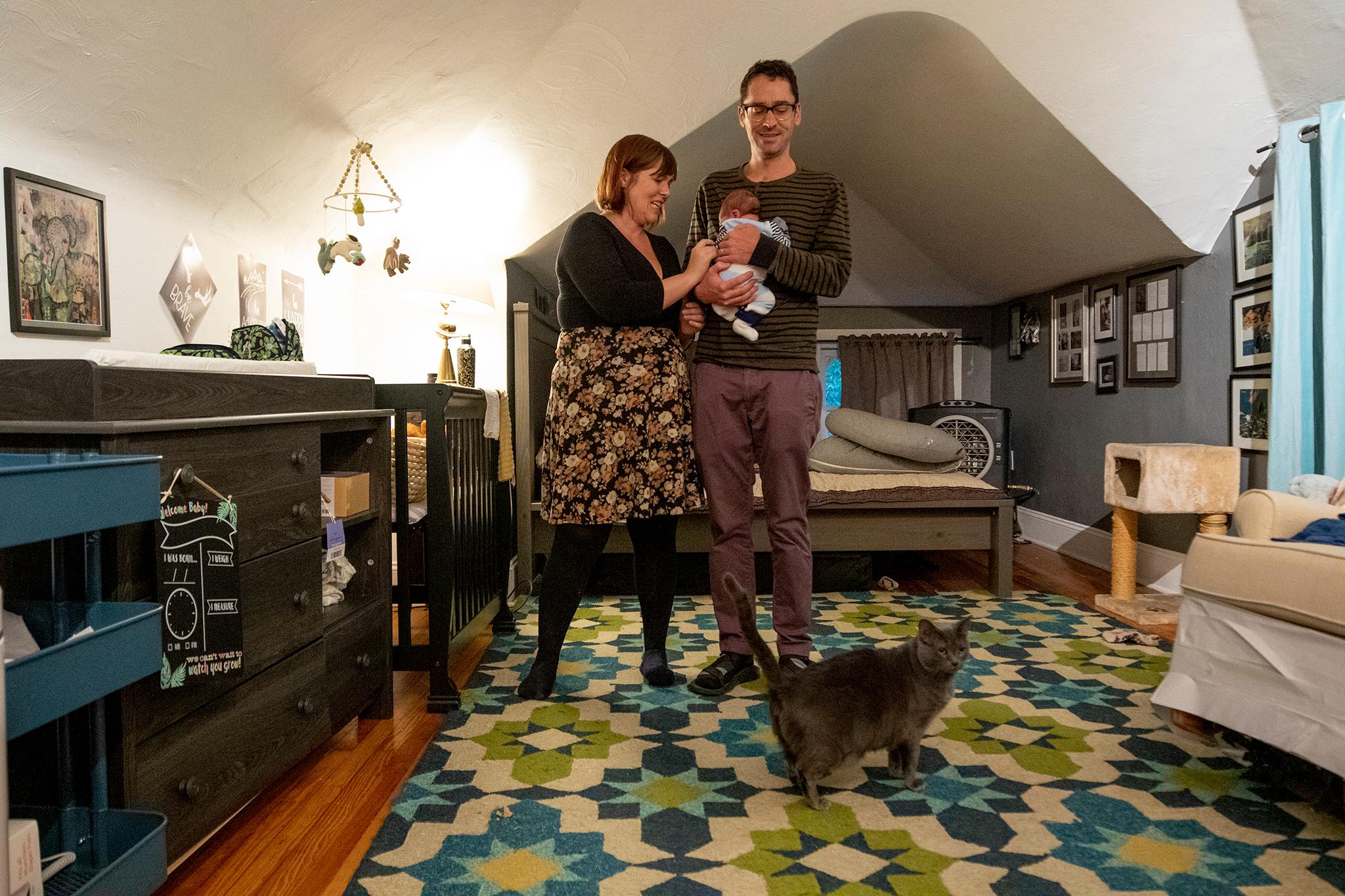
"I sold my condo, and people thought I was crazy to sell my condo and move into a big house full of strangers," Wells said. "And Stephen became a property owner of a mansion in Capitol Hill and everyone thought he was a crazy sellout. So it was like we were both pissing people off, which kind of felt like, 'Okay, this is probably the right thing.'"
Wells spent the next few years diving into the real estate industry -- eventually becoming a realtor -- to figure out how to make cooperative living possible and equitable in a city where individual ownership is the status quo.
More than half of the co-ops in the United States are in New York City, where the model was first pioneered in the late 1800s.They have also grown in San Francisco and Chicago. More than 1.5 million families live in co-ops nationwide, according to the National Cooperative Business Association. In the Bronx alone, there are 15,000 people living in 35 buildings in what is the largest co-op in existence.
In Denver, co-ops are virtually nonexistant. Living with more than five unrelated adults is illegal. Until City Council passed its Group Living Amendment in February of 2021, no more than two unrelated adults were allowed to share a home. In last November's election, the Group Living Amendment was challenged by a group called Safe and Sound Denver, but that effort was opposed by nearly 70% of Denverites.
Figuring out the legal mechanism to buy domestic real estate without individual ownership hasn't been as simple as Wells thought it would be.
"At the time that we started the project, I thought, surely someone else has done this before and we can just copy them and have agreements about how to share ownership in a property," she said. "For several years, no one that we encountered had done it. And so it took us a long time and money with lawyers and a lot of conversations and a lot of learning about housing, to be able to adapt a limited-equity model to share equity that people are earning on their bedrooms."
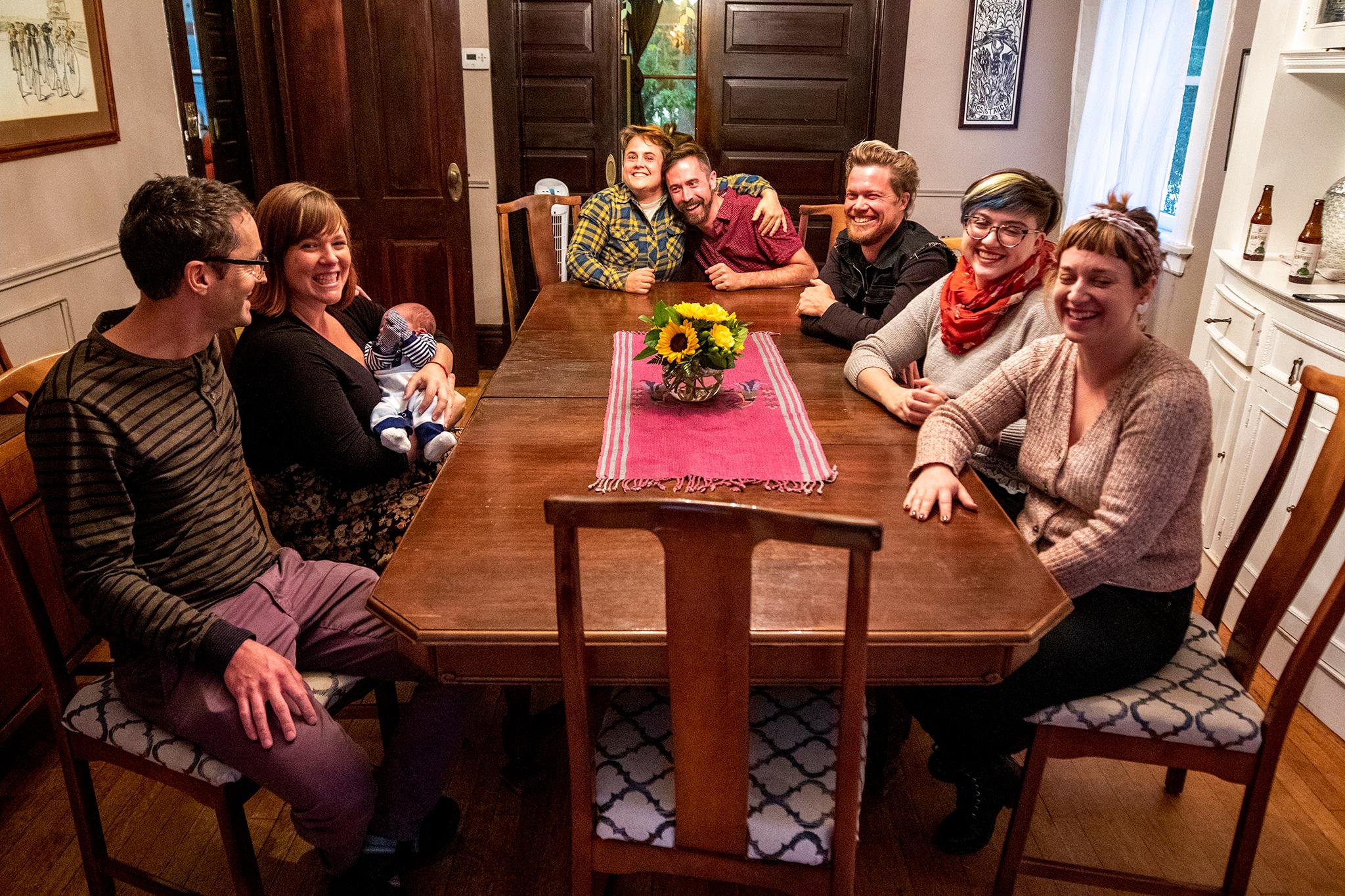
At first, the couple created a temporary model where the co-op, which is a legal entity in the state of Colorado, rented the property from them as individuals.
That had a big flaw.
"Hypothetically, mortgage holders could decide at some point that they don't want to rent the house to the co-op," Wells said. "It didn't have that same level of stability."
And their individual power as property owners caused tension with housemates, who perceived them as having disproportionate weight in decision-making -- something the couple was trying to distribute among all the co-op members.
Ultimately, they wanted a model that would take them, as owners, out of the equation and make the co-op itself the owner of the mansion.
Finally, they found a legal solution that worked.
"After going through a formal incorporation process and submitting our first year of formal taxes as a subchapter-T cooperative, we were able to pursue financing through 1stBank to transfer the home formally into the co-op's name," she said. "So now, the co-op will be run through the bylaws that we created, which actually stipulate that no individual owners are allowed to sell the house for personal gain."
On Friday, August 5, the couple inked the deal at 1stBank and essentially decommodified their own housing.
"The only way someone could sell the house in the future would be to create a new co-op," Wells said. "Or if it is sold and there's no new co-op to create, then the funds are distributed to an affordable housing nonprofit."
What about the equity Wells and Polk earned as owners? Didn't they lose out in the deal?
"Everyone is like so on board with the idea of sharing equity until they realize that it means they have to give some up," Wells said. "Oh wait... shoot."
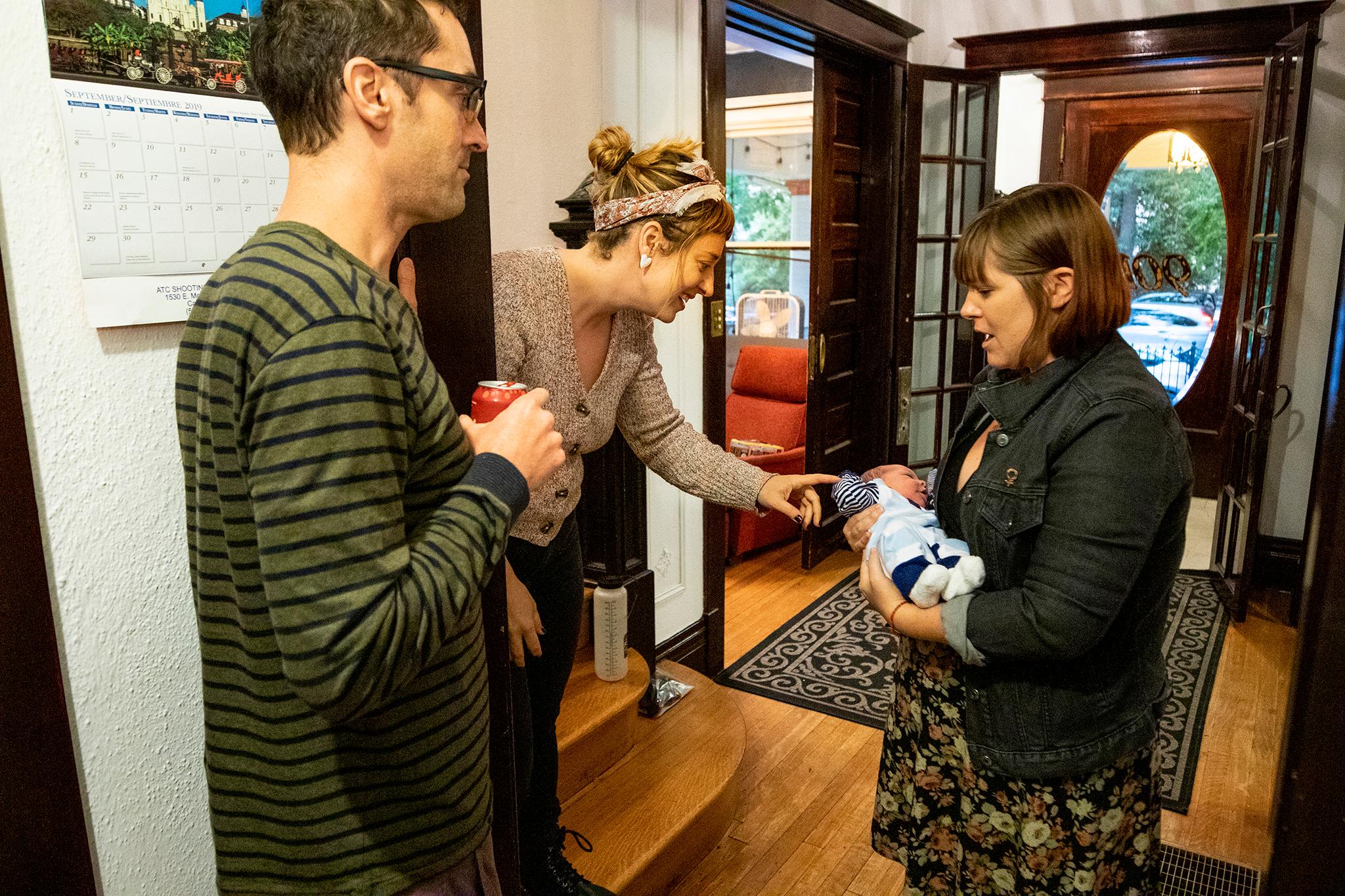
Polk said they bought the house on the promise that others could contribute an equal and fair share paying down the mortgage. As owners they could, within the law, take in a profit. But in the democratic world they're trying to create, economic participation should be honored equally, and so they aren't cashing in on the collective.
Polk acknowledged sharing equity requires a big cultural shift -- and one he believes more people should make. The system just isn't set up that way.
"Just because you own something in this society, that means you have disproportionate control over a particular property, regardless of whatever value you're putting into it," Polk said. "So we could have moved in here and have everyone paying our mortgage, living free, and then we walk away with all of the equity.
"And that's the standard protocol for a landowner or an investment property by an apartment complex," he continued. "Everyone pays the mortgage, you're also extracting profit off the top, and then all of that is yours, just by virtue of the fact that you own it."
Wells and Polk, as the original owners, will be receiving enough equity to pay for what they put into the house.
Other equity has been used to buy an adjacent carriage house next door and also buy a second co-op in Athmar Park to create more housing for more people.
"From our perspective, it's about living our values of what is enough for us," Wells said. "And also how do we create a world that is in service of the more ideal way that we want people to live and to experience shared resources."
"We're not abolishing ownership," Polk said. "We're actually just spreading it out in a more equitable and democratic way."
Cooperative living has turned out to be a blessing for Wells and Polk.
"Having people to share your life with that are outside of just your partner is deeply powerful," she said. "And also sharing so much of your life with other people that are on your team and rooting for you to get to the next and better parts of your life is so important -- especially when we're going through personal challenges, whether that's like job losses or breakups or like the big personal challenges that we couldn't have anticipated like a pandemic."
Six months before COVID-19 arrived Denver, Wells and Polk had a child. As lockdowns hit Denver, childcare centers proved to be unreliable. Members of the co-op were able to help the new family. One housemate, who worked at a restaurant that had shut down, became Polk and Wells's child's full-time nanny so they could continue to work.
While many Denverites continue to struggle with finding and paying for childcare, Wells and Polk found an at-home solution, because of their shared housing situation. That kind of support is intrinsic to co-cops.
"There was this beautiful ecosystem that happened as a result of living together," said Wells, "where we really did become a family in a lot of ways."

